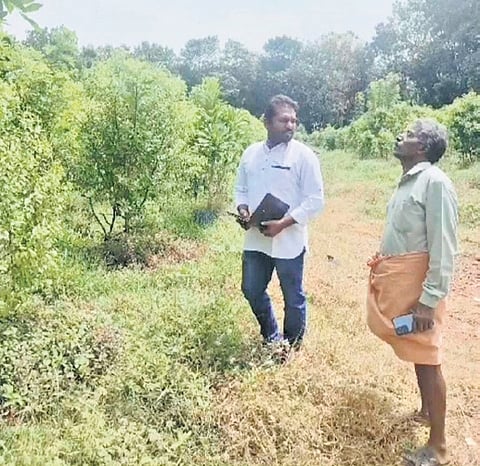

ALAPPUZHA: The air of Thamarakulam (lotus pond), a village in Bharanikkavu block panchayat in Alappuzha, will be rich with the aroma of sandalwood soon.Steps are on to conduct large-scale farming of sandalwood trees in the panchayat, as the village, backed by farmers’ cooperatives, strives towards becoming the second biggest sandalwood plantation in the state. Already, around 8,000 sandalwood saplings have been planted in the past two years by around 25 farmers.
Earlier, only the forest department had the authority to plant sandalwood. However, a Karnataka High Court ruling a few years ago allowing cultivation of sandalwood by private parties, and the relaxation of relevant norms by Kerala’s forest department in 2020 helped in commencing large-scale farming of the precious trees.
“While the judgments laid the groundwork for allowing private individuals to cultivate sandalwood, certain rights, such as cutting, storing and selling the wood, remain under the jurisdiction of the respective state governments and forest departments,” said K Prasad, a farmer from Thamarakulam, who is leading farming activities in the village.
Sought for their aromatic wood and oil, sandalwood trees are considered highly-valuable. A 15-year-old tree fetches more than Rs 1 lakh. In fact, sandalwood is being touted as the future farming sensation. Karnataka leads in its cultivation, with farming being done in over 5,000 sq km. Tamil Nadu follows (3,000 sq km) and Kerala is third (around 1,500 sq km).
The practice is also spreading rapidly to other states, including Odisha, Madhya Pradesh, Maharashtra, Rajasthan, Uttar Pradesh and Bihar. The tree can adapt to various soil types – sandy, clay, red, laterite, even black cotton soil. In Kerala, sandalwood can be successfully grown in any well-drained location, regardless of soil type, making it a viable option for a wide range of farmers.
“For ideal growth, saplings aged seven to eight months and around one foot in height are recommended. Planting pits should be 50 cm in all dimensions and spaced 3m apart. Before planting, pits are treated with dolomite and enriched with organic materials like compost, neem cake, and phosphate to create a nutrient-rich environment. Around 350 to 400 saplings can be planted in one acre of land. Planting one sapling requires less than Rs 300,” Prasad said.
Under proper care, sandalwood trees reach chest-height with a width of 70 to 75 cm in 12 to 15 years and yield 15 to 20 kg of wood per tree.“One kg of wood is priced between Rs 10,000 to Rs 15,000 per kg depending on its quality,” said P J Suhyab, Marayoor divisional forest officer.